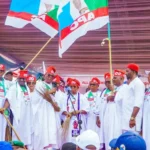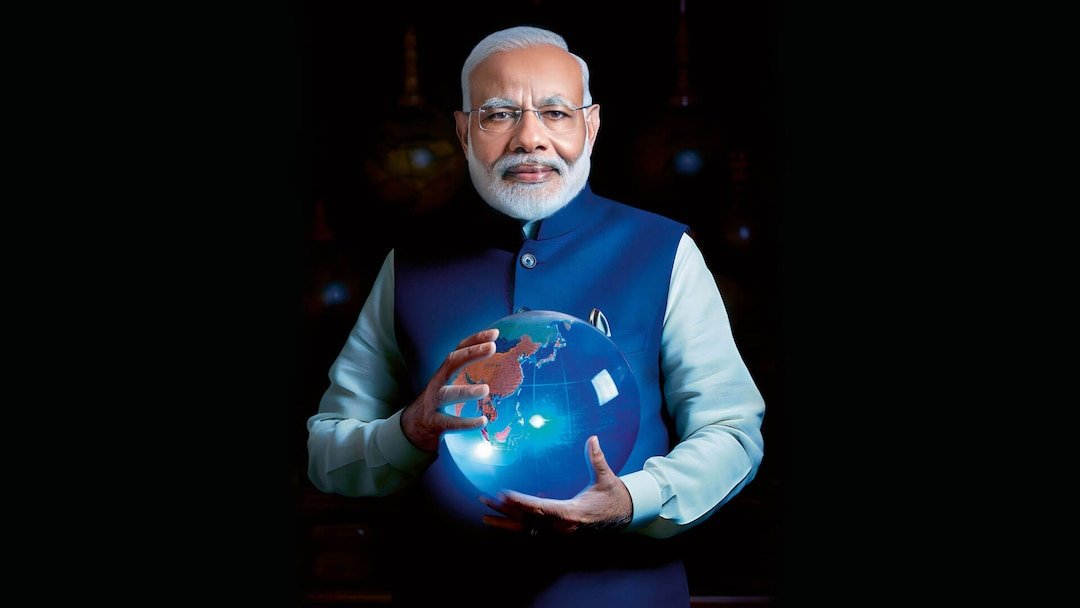
BT Exclusive: ‘This G20 Reflects the Voice of the Global So

India’s G20 presidency is a watershed moment, with the country helping shape a number of global issues. Among them are the reform of multilateral development banks, the inclusion of the African Union and the focus on climate action. As the central figure taking forward the G20 this year, Prime Minister Narendra Modi has successfully ensured that India plays a pivotal role in addressing the concerns of the Global South.
In an exclusive, over 40-minute-long interaction with Business Today at his sprawling, tastefully done up office in 7, Lok Kalyan Marg just days before the G20 Leaders’ Summit, Modi—dressed immaculately and looking very relaxed—speaks passionately about the opportunity India has to help address areas of global concern, how the country’s digital public infrastructure has become the toast of the world, India as a potential manufacturing hub, and much more.
Q: India’s presidency of the G20 comes at a time when international agencies are bullish about the growth potential of the Indian economy. In your view how will the G20 summit help bolster India’s image as an emerging economic power and as a credible voice at global economic platforms?
A: I don’t think the image of a country and its branding can be bolstered through a summit. The financial world works on hard facts. It works on performance and not perception.
Whether it is the way India fought the Covid-19 pandemic and helped other countries to do so, or the way we managed our economy to make it the fastest growing, or the way our financial and banking systems have been going from strength to strength, today, the world is aware of India’s trajectory. So, to see a summit through the prism of image building undermines the India growth story.
The G20 summit should be seen in a global context. During and after the Covid-19 pandemic, the world has gone through a lot of turbulence and naturally, the G20 group of countries has also felt concerned.
The G20 countries also felt that just talking about billions and trillions doesn’t create impact and there should be focus on human-centric development.
My experience is that discussions have been going on these lines during our G20 presidency. In so many meetings and discussions, we have seen a shift from old positions, giving way to new perspectives.
Developed countries and developing countries will come together for the first time and find solutions to global problems. We have laid the foundation for inclusivity by inviting the African Union.
The extent of participation in our G20 presidency has been unprecedented and the openness of participants has been unparalleled. I am confident that this will lead to success, enabled by the contributions
of all countries.
India and India’s G20 will act as a catalytic agent for the new global order.

Q: Your government has invested a lot of energy in shaping India’s G20 presidency. What are the key outcomes you hope to achieve at the end of India’s presidency?
A: I am thankful to you for seeing India’s efforts. Today, in the absence of reforms, multilateral institutions are losing credibility and trust all around the world. On the other hand, many smaller groups are emerging.
The world is looking at how G20 is shaping up to fill the vacuum existing today in terms of multilateral institutions. The world is looking at G20 to emerge as a driving force in the world and help shape policies which shape the future of humanity. The G20 group is being looked at as a ray of hope by the world and the ground for this is being laid during India’s presidency of G20. The work that has happened and the outcomes expected are all futuristic.
This G20 is reflecting the voice and concerns of the Global South. This G20 is giving momentum to women-led development. When technology is going to play a big role in the future, this G20 is taking huge leaps in the fields of AI and DPI [digital public infrastructure].
India’s G20 presidency will contribute towards One Earth in the form of path-breaking green initiatives.
India’s G20 presidency will contribute towards One Family in the form of historic efforts aimed at inclusive and holistic growth.
India’s G20 presidency will contribute towards One Future by reflecting the voice and concerns of the Global South as well as taking huge leaps in co-operation in the field of technology in the form of AI and DPI.

“ This G20 is reflecting the voice and concerns of the Global South. This G20 is giving momentum to women-led development. When technology is going to play a big role in the future, this G20 is taking huge leaps in the fields of AI and DPI [digital public infrastructure].”
Q: With extreme weather events and the need to fight climate change turning into an urgent global issue, what is the progress you are hoping to achieve in the G20?
A: Humans have to accept that we are at the root of this problem. Yes, there are some nuances—there are those who are more responsible for the current situation than others. But we need to accept the reality of human impact on the planet. The day we accept it fully, the issue will not appear as a challenge or a problem. We will automatically look at solutions, be it through technology, be it through lifestyle, etc.
Today, there is a restrictive attitude in the world surrounding this issue. There is talk of limitations and there is an environment of criticism on climate actions. Hence there is friction among the countries regarding climate action. If all energy is spent on focussing only on what not to do rather than on what needs to be done, such an approach cannot lead to action.
Further, a divided world cannot fight a common challenge. That is why our approach during our G20 presidency and otherwise has been on unifying the world on this issue for what can be done.
The poor and the planet, both need to be helped. India is moving ahead on this with not only a positive attitude but also a mindset of driving solutions. Our initiative of ‘One World, One Sun, One Grid’ was a similar positive initiative.
There is a need to be action-oriented in thinking. If there is no transfer of technology, how can poor countries work on climate change mitigation? If there is inadequate climate finance, can poor countries work on climate change mitigation?
Our presidency prioritises resource mobilisation for climate finance, tailoring support for transitions to individual country needs. Acknowledging the need for innovative green technologies, we emphasise financial solutions, policies, and incentives to spur private investment in the development and deployment of low-carbon solutions.
Under its G20 presidency, India advocates for a diverse global policy palette on transition, allowing countries to select from various pricing and non-pricing strategies, from carbon taxes to green technology standards, based on their unique situations.
Further, India’s experience has been that true transformation only comes from mass movements, from people’s participation. Our Mission LiFE seeks to make the fight against climate change a mass movement by focussing on lifestyle transformation. When every individual knows that they can make a direct difference to the welfare of the planet, results will be much more broad-based.

“ Our presidency prioritises resource mobilisation for climate finance, tailoring support for transitions to individual country needs. ”
Q: There are also other important financial issues that are a part of India’s G20 agenda, including debt restructuring for countries facing high levels of sovereign debt. What has been the progress on these and how hopeful are you of a consensus on these issues during India’s presidency?
A: Financial discipline is very important for all countries. It is the duty of each country to guard itself from financial indiscipline but at the same time there are forces that have sought to take undue advantage by catalysing debt crises. These forces have capitalised on the helplessness of other countries and led them into debt traps.
The G20 has prioritised addressing debt vulnerabilities in low- and middle-income countries since 2021. Achieving the 2030 SDG agenda depends on these countries’ progress, yet debt servicing hinders their efforts, limiting fiscal space for SDG investments.
In 2023, under India’s presidency, the G20 gave a significant boost to debt restructuring through the Common Framework. Before India’s lead, only Chad underwent debt restructuring under this framework. With India’s focus, Zambia, Ethiopia, and Ghana have made notable advancements. India played a pivotal role, being a key creditor.
Outside the Common Framework, G20 forums facilitated debt restructuring coordination for Sri Lanka, with a committee co-chaired by India, Japan, and France.
The Indian presidency also saw the inception of the Global Sovereign Debt Roundtable, co-chaired by the IMF, World Bank, and G20 presidency. The Roundtable aims to strengthen communication and foster a common understanding among key stakeholders, both within and outside the Common Framework, for facilitating effective debt treatments.

Q: There has been talk of a global framework for regulation of cryptocurrencies. What has been the progress on this?
A: The rapid pace of change of technology is a reality—there is no point in ignoring it or wishing it away. Instead, the focus should be on adoption, democratisation and a unified approach. At the same time, the rules, regulations and framework around it should not belong to one country or a group of countries.
So not only crypto, but all emerging technologies need a global framework and regulations.
A global consensus-based model is needed, especially one which considers the concerns of the Global South. We can learn from the field of aviation. Be it air traffic control or air security, there are common global rules and regulations governing the sector.
In the past nine months, vast efforts and energy have been channelled into debt and crypto agendas. India’s G20 presidency expanded the crypto conversation beyond financial stability to consider its broader macroeconomic implications, especially for emerging markets and developing economies. The G20 reached a consensus on these matters, guiding standard-setting bodies accordingly. Our presidency also hosted enriching seminars and discussions, deepening insights into crypto assets.
We haven’t stopped at ideating on how we should move ahead. We have also come up with tangible details on the way ahead and how quickly we need to move. So, our road map is detailed and action-oriented.

“ The G20 group is being looked at as a ray of hope by the world and the ground for this is being laid during India’s presidency of G20 ”
Q: India has taken up the important agenda of reforming the multilateral development bank (MDB) structure. Previous efforts have not had much impact. To what extent are you hoping that India’s presidency will take this key agenda forward?
A: On the MDB agenda, the efforts in the G20, till recently, have been primarily focussed on how their balance sheets can be optimised so that they can use their existing resources most effectively.
However, since the pandemic, there has been a realisation that MDBs need to integrate global challenges such as climate change, pandemics, etc., within their core development mandate. This would need a reform in the existing frameworks of functions of MDBs and expansion of their existing financial resources. This is a felt need across the entire Global South.
During our presidency we have been able to effectively steer this issue. Unlike earlier, the call for reforms of the MDBs are now coming from the shareholders of the MDBs themselves and this has ensured that there is a lot more traction around the Indian presidency’s MDB agenda. Shareholders of the MDBs now realise the importance of the issue.
The presidency established the G20 Independent Expert Group on Strengthening MDBs. The Group comprises some of the best global minds on international financial architecture. The Group has submitted Volume 1 of its report, and Volume 2 will be presented in October.
The recommendations of the expert group largely echo India’s thoughts on enhancing the financial strength of MDBs, increasing the lending levels to meet the core mandates of eliminating poverty and fostering shared prosperity along with addressing emerging global challenges. Through this report and dialogues to build consensus, India has effectively embedded the priorities of the Global South in the larger global conversation on MDB reforms.

“ The poor and the planet, both need to be helped. India is moving ahead on this with not only a positive attitude but also a mindset of driving solutions ”
Q: India’s digital public infrastructure of the India Stack and services such as Aadhaar, UPI, Co-WIN and Pradhan Mantri Jan Dhan Yojana have been immensely successful in providing services directly to beneficiaries. How far has India been able to showcase these as a viable model for development at the G20 and help other countries use these successfully?
A: Inclusive growth is the first requirement for social justice and inclusive growth needs last mile delivery. India has shown that technology can be a big enabler of ensuring last mile delivery. Technology has helped India achieve targeted welfare delivery.
Our use of technology has been aimed at inclusive growth and formalisation. The use of technology in Aspirational districts has led to significant improvement in various indicators. It has not only led to improved formalisation but also availability of affordable credit and other facilities for the poor.
Today, there is global acknowledgement of India’s success in promoting and using digital public infrastructure towards socio-economic development of our people. The fact that 46 per cent of global digital payments transactions are now in India is one shining example of the success of our policies. The world today sees India as the incubator of innovation.
Not only have global experts appreciated India’s use of digital public infrastructure, but I also sense a lot of interest in them during my meetings with world leaders.
India’s digital public infrastructure has a diverse stack of products which find utility in both the Global South and the developed world. Many countries are interested in learning from our experience, and we have successfully initiated co-operation with at least a dozen countries.
We are working with G20 countries to accelerate global development by leveraging technology, particularly promoting the concept of digital public goods through a common approach to digital public infrastructure. And this has been deeply appreciated by the G20 membership at large.
We are confident that the growing popularity of India’s digital public infrastructure will go a long way in accelerating global financial inclusion and ease of living.

“ Building on our success and recognising the importance of start-ups globally, India, during its G20 leadership, made a significant move by establishing the Startup20 Engagement Group. This is the first of its kind initiative under the G20 ”
Q: There has been discussion around using the G20 platform for helping build a global start-up ecosystem. How does your government hope to move forward in this regard?
A: If we look at history, there had been an era of incremental growth for quite some time. But today, things have changed. From an era of incremental change, we have gone to the era of disruptive innovations. The magnitude of change that was seen in 100 years earlier, happens in just 10 years now! This means that the governments and society have to be ready to catch up with the rapid changes.
If we look at India’s experience, we not only understood the potential of start-ups, but also provided them with a launch pad.
We engaged the youth with multiple opportunities. We started Atal Innovation Mission and Atal Tinkering Labs. Today, there are 10,000 Atal Tinkering Labs in which 75 lakh students have worked on lakhs of innovation projects. We have set up incubation centres and held a large number of hackathons. We have also held hackathons in partnership with various countries. This led to the development of a mindset of ‘problem solving’.
All these interventions have led to the exponential emergence of start-ups and these start-ups are bringing about disruptive change.
Today, India has around a hundred thousand start-ups and 100 unicorns. A lot of experts see India as the hub of start-ups. When this is our basic governance philosophy, it is natural that we want to take this momentum globally.
Building on our success and recognising the importance of start-ups globally, India, during its G20 leadership, made a significant move by establishing the Startup20 Engagement Group. This is the first of its kind initiative under the G20. This grouping is acting as the voice of the global start-up ecosystem bringing together varied stakeholders on a common platform.
It aspires to create a global narrative for supporting start-ups and enabling synergies between start-ups, corporates, investors, innovation agencies and other key ecosystem stakeholders.
We are positive that they will be able to take concrete steps in areas like capacity building, identification of funding gaps, enhancement of employment opportunities, achievement of SDG targets, and growth of an inclusive ecosystem.
The meetings of this new Engagement Group have generated enormous interest and we hope that this will establish itself as a key pillar of the G20 process.

“ India has shown that technology can be a big enabler of ensuring last mile delivery. Technology has helped India achieve targeted welfare delivery ”
Q: The IMF has said India is the fastest growing economy in the world with an expected growth of 6.1 per cent this fiscal. Do you expect the economy to do better than anticipated this fiscal given that most macroeconomic indicators remain robust and point towards revived demand?
A: The experience of the last few years suggests that India has performed better than predicted. This is our track record.
Today, we are growing faster than most countries and our people deserve credit for it. Now, when we aspire to grow even faster, our people have a big responsibility. Our national character will play a big role as we take the next leap of growth. Just like the Swadeshi Andolan gave great strength to our freedom movement, today’s mass movements will power the next wave of growth.
This will happen through the mantras of Vocal for Local, Aatmanirbhar Bharat, Zero Defect & Zero Effect in manufacturing, Zero Import, Maximum Export in Agriculture, and Self-Sufficiency in energy needs.
As our citizens are putting these principles into action, we are also moving closer to our goals. Global manufacturers are coming to India and an era of unprecedented job creation is unfolding. And when I say Vocal for Local, for me, anything which is made in India with the sweat and toil of Indians is local.
Around 10 years back, India was being counted among the Fragile 5 countries. India was seen as a country which was not living up to its full potential.
In 10 years, India has moved from the 10th largest economy of the world to 5th largest economy of the world. In 10 years, India is now seen as a country with immense potential which is backed by impressive performance.
The government’s infrastructure push in the recent years is also helping crowd in private capex. Gross fixed capital formation in India as percentage of GDP is at 34 per cent, highest since 2013-14. Credit growth in 2022-23 surged to almost 15 per cent, the strongest in almost a decade. These indicators point to the beginning of a new private capex cycle.
Domestic consumption, both rural and urban, remain strong. Inflation is on a downward path, forex flows have been strong in the current year. With every indicator looking up, growth is bound to be strong. In the last nine years, FDI inflows have doubled, forex reserves have doubled, central government capex has increased more than five times, bank balance sheets have been repaired and they are profit making.
I am quite positive that India’s economy will continue performing well and deliver unprecedented opportunities and prosperity for our people.

“ If we do not include developing countries, how can we realise Vasudhaiva Kutumbakam? How can there be One Earth, One Family, One Future? ”
Q: With companies like Apple and Tesla showing interest in developing manufacturing centres in India, to what extent in your view has the country made progress in turning into a viable alternative global production hub to China? How do you assess the execution of the Make in India programme and what more do you think needs to be done for India to benefit from the China+1 pivot in global supply chains?
A: I am surprised by your question. If someone is exercising to improve his own health, should it be seen as his preparation to fight someone else?
We have one of the youngest and most talented youth in the world. Should they not have the freedom to dream of progress? If India has such a big market, should it not dream of also becoming a manufacturing power? I want my fellow citizens to have access to facilities as good as those of developed countries. The world is today recognising India’s strength. They are coming here because it is good for their company, their product and their profits.
The efforts we are making since 2014 should have been made 40-45 years ago. At that time, the country knew which were the right things to do, but the decision makers took the wrong decisions.
We have been focussing on increasing manufacturing and improving ease of doing business since 2014. Through focus on world class infrastructure, skill development of our workforce, supportive policies and attractive fiscal incentives, we are transforming our manufacturing sector.
The growth of Apple’s manufacturing footprint in India, the decision of Micron to set up semiconductor assembly in India, all show the increasing attractiveness of India as a manufacturing destination.
Building up scale and volume is critical to being able to turn India to a competitive alternative global production hub. That is where attracting investments and creation of manufacturing capacities is essential for the development of the supply chain. Our PLI schemes are designed to incentivise companies to increase their manufacturing capacities and local value addition year on year.

Q: Geopolitical headwinds, particularly the Russia-Ukraine war make the task of forging global consensus complicated. During India’s presidency how do you hope to deal with issues on which finding global consensus has proven difficult? We are seeing different countries try to find a way of forging peace between Russia and Ukraine. As G20 President, do you have a plan which you think may help in finding a way out of the Russia-Ukraine war?
A: As per your business strategy, you are coming out with a special issue on G20. However, your question is more about a political debate. Therefore, you should assess whether it is desirable to link G20 or our G20 presidency with this issue.
I would like to ask you—why did it occur to you to ask about just this issue as if there is only one problem in the world? Why did it not occur to you that there are problems in other parts of the world like in Syria, in some countries in Africa, in East Asia, in Latin America? As a business magazine, why didn’t it occur to you to focus on the meetings of G20 held so far rather than focussing on political debates?
There are international organisations like the UN who are focussing on all these issues. My focus is that we will steer our G20 presidency to build common positions on developmental issues that are of importance to the Global South.
Q: You advocated vigorously for the African Union to be granted membership of the G20. What role do you see the African Union play in the G20 and could you share your vision about the role the African continent will play in shaping the new emerging world order?
A: In October 2015, we had held a big India-Africa Summit in New Delhi. It was a massive effort where leaders from 54 countries of the African continent had come to India. It was a befitting occasion to bring out a special issue. Unfortunately, the media of our country did not understand the importance and uniqueness of that event. In fact, you should also look at as to how much coverage your magazine gave to that summit.
I am happy that at least now you have thought of the African Union and asked me this question.
I feel deeply for the countries of the Global South. It is my firm belief that we need to give importance to the developing world if we have to make progress on the global development agenda. If we give them a place of pride, listen to them, understand their priorities, they have the capacity and capability to contribute to global good.
When I was the Chief Minister of Gujarat, I had, for the first time, hosted the Summit of the Africa Development Bank in Ahmedabad. It was also the first time they had held their meeting outside Africa. It was a great success.
This time, we decided to keep Vasudhaiva Kutumbakam as the motto of our G20 presidency. It is based on our fundamental belief and ethos.
If we do not include developing countries, how can we realise Vasudhaiva Kutumbakam? How can there be One Earth, One Family, One Future?
That is why, after taking over the presidency of G20, the first event that I held was the Voice of Global South Summit in January this year. After having listened to them, understanding their priorities and concerns, we set the agenda for our G20 presidency. We have brought the priorities of the Global South onto the agenda of the G20, and we have made progress.
It is in this spirit that I have taken the initiative to make the African Union a permanent member of G20 during our presidency. I am confident that we will receive support to realise the same. This will make G20 more representative and give greater voice to the Global South.
A big threat to the world order emerges when countries feel that their views, concerns and issues are not taken in consideration in decision making.
It has been our conviction that without the voice and participation of the developing world, sustainable solutions to global challenges cannot be found.
Africa, in particular, has not been given its due recognition and place when it comes to institutions of global governance. India and Africa enjoy a very special relationship, and India has been a steadfast advocate of a greater role for Africa in global affairs.
During our presidency of the G20, we have taken the initiative to seek a permanent seat for the African Union in the G20, and we believe that our proposal will enjoy the support of other G20 members.
We believe that this step will empower the African continent to be able to better articulate their concerns and perspectives on the global stage, and play an important role in shaping the world order.










